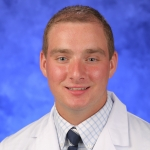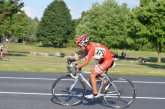Optimal Combinatorial Strategies for RAS-Driven Neuroblastomas

Background
Neuroblastoma is a malignancy of the developing sympathetic nervous system and is the most commonly diagnosed cancer in the first year of life. Half of all patients diagnosed with neuroblastoma are characterized as high-risk. Nearly 60% of all high-risk patients will develop drug resistance or relapse, which remains largely incurable. Thus, there is an urgent need for more effective therapies for relapsed patients with limited toxicity to improve survival. Recently, the Maris lab discovered that mutations and other genetic aberrations of the RAS-MAPK pathway are enriched in relapsed neuroblastoma. The small molecule inhibitor trametinib targets the MEK1/2 protein in this pathway and exerts some efficacy in neuroblastoma models, but it is not curative. Because resistance to trametinib develops quickly in other cancers, we are investigating potential resistance mechanisms in neuroblastoma to develop a targeted combination drug strategy. The Maris lab has performed a large high-throughput drug screen of over 3,000 compounds in combination with trametinib in five neuroblastoma cell lines with RAS-MAPK activation. This drug library contains compounds targeting a vast array of cancer signaling pathways and cellular proteins.
Project Goal
In order to identify a drug combination with broad efficacy, I will help validate drug combinations with efficacy across at least 3 or more cell lines. I will perform in vitro experiments to test the synergy between trametinib and promising compounds, as well as assess the resulting effects on cellular proliferation, signaling, migration and survival. In particular, I will focus on identifying mechanisms of trametinib resistance by analyzing the pathways targeted by validated drug combinations to understand how the cells are able to bypass MEK1/2 inhibition. We hypothesize the effective trametinib and small molecule drug combinations will produce a more effective therapeutic strategy and shed light on signaling events driving relapsed RAS-driven neuroblastoma.
Mentored by Dr. John Maris
Children’s Hospital of Philadelphia, Philadelphia, PA

